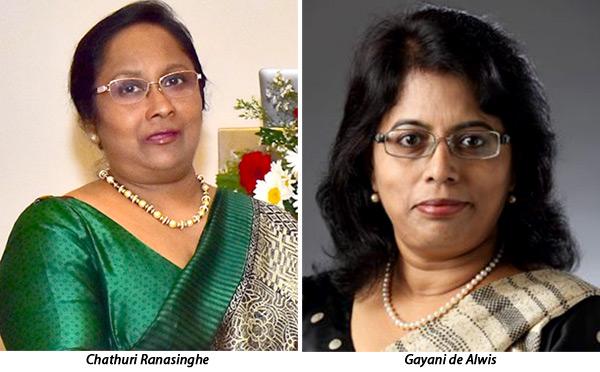
The Women’s Chamber and global women’s organisation heads urge the contestants of the upcoming General Elections and the new government to formulate a clear and consistent national policy to enhance women’s entrepreneurship skills and their role in civil and economic administration that would help bridge the gender disparity in society.
They stressed the need to ensure employment particularly to those who lost their jobs due to the global pandemic while guaranteeing the rights and privileges of women to create a women-friendly and healthy workplace culture.
Women’s Chamber of Industry and Commerce Chairperson Chathuri Ranasinghe said that women in Sri Lanka have proved to be able and resilient in managing commitments and undertakings, at personal, entrepreneurial and professional level.
SMEs provide 45% of the employment opportunities and contribute to 52% to the GDP. Though there has been an increase in the number of women entrepreneurs, there is still much that can be done to assist more women to venture into entrepreneurship and business activities.
Due to the Covid-19 pandemic a large number of women lost their jobs and a large number of female migrant workers have also lost their jobs and returned to the country.
All these women need to be identified and assisted either to be an entrepreneur or to find employment through a district network, to work out an alternative means of earning a livelihood.
Such assistance could include: equal opportunities offered to men and women, advisory and information services, financial assistance and training. Increased facilities such as child care crèches and care for the elderly could also enable more women to participate in economic activities.
The new government should give every possible training with facilities and incentives to encourage women to take to agriculture and agriculture based industries and activities, while providing storage facilities throughout the country and direct market access.
It is most disheartening to see that women still face a lack of personal security whether at the workplace, in society, on the roads or even at home. Stringent laws should be implemented against violence against women and sexual harassment.
An education policy which would meet the needs of the labour market, assist in job creation and the realisation of entrepreneurial aspirations or academic and professional ambitions of women.
Women in Logistics and Transport (WiLAT) Global Chairperson and Immediate Past Chairperson, Chartered Institute of Logistics and Transport, Gayani de Alwis said discrepancy in the benefits in Maternity Benefits Ordinance (MBO), Shop and Office Act (SAO) and ILO Convention 183 should be rectified by streamlining MBO and SAO to prevent women in various industries being at a disadvantage and set up an insurance fund to share the cost of maternity benefits between government and employers in line with ILO-convention C183.
The Shop and Office Act should be broadened by increasing the scope of the term ‘industrial undertakings’ to enable females in the ICT, BPO and KPO (Knowledge Process Outsourcing) sectors to work at night. Steps should be taken to introduce laws, amendments and clauses to clearly define rights and benefits related to part time and flexi work arrangements.
The SAO and Factories Ordinance should be reviewed to cover part time and seasonal work so that women who have taken career breaks can work part time and do flexi hours from home. HR Policy interventions should be developed for the public and private sectors. The formal, informal sector and the public sector needs to have policies that support female labour force participation.
The private sector should be incentivised to hire more females.
There should be greater focus on Private-Public Partnership policies to support infrastructure to increase female labour force participation, such as special hostels, women-only transport facilities, creating an online job sourcing company to act as a middle agent to outsource work for qualified women to work from home
Social sensitisation through public debate via mass media and removing stereotyping gender roles in school books and advertisements to minimise conscious and unconscious biases are vital.
Accessing capital is a problem that female entrepreneurs face when trying to start or grow their small businesses. Women have a more difficult time securing loans than men. By lifting barriers and helping women secure loans, not only can women own their businesses but also grow and employ more females.
